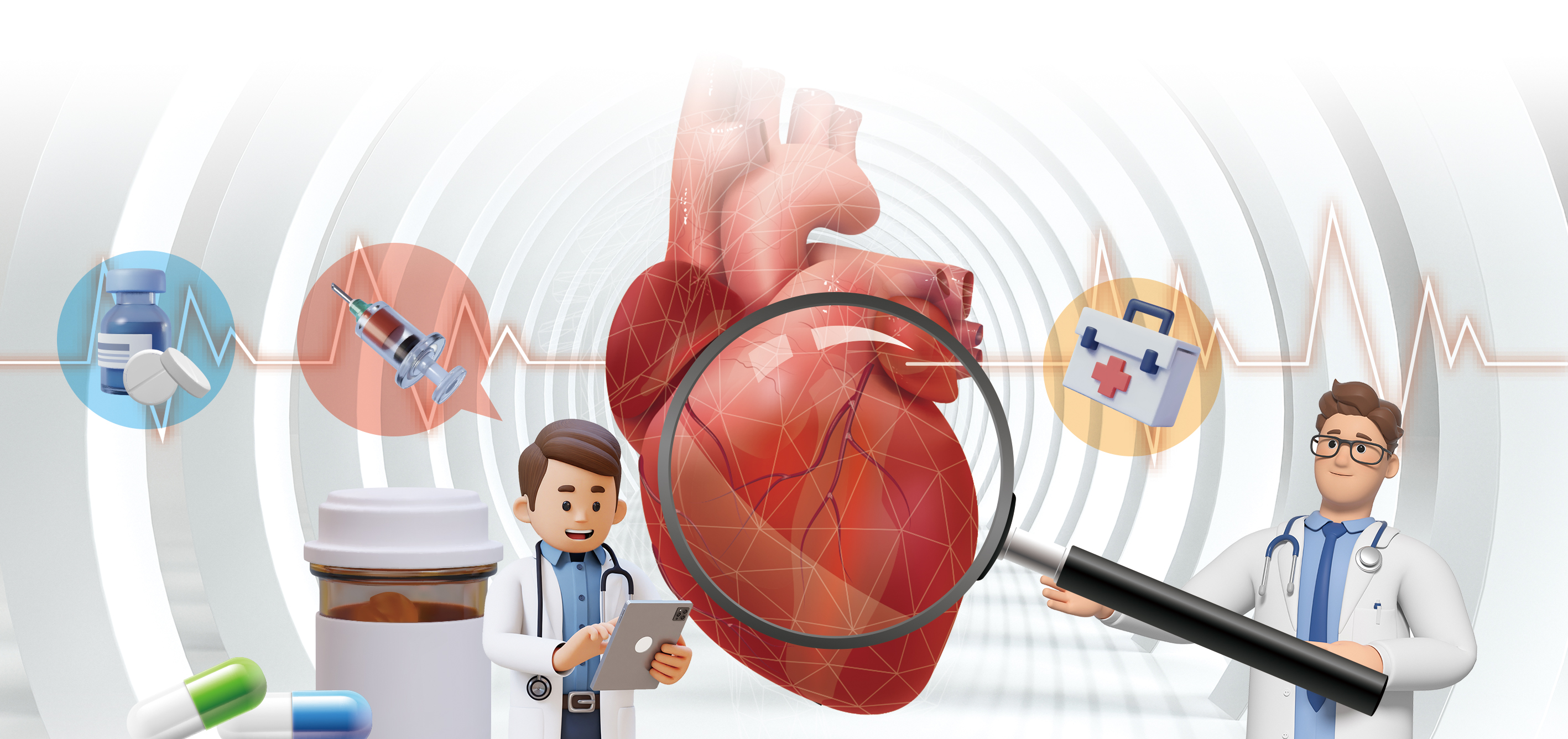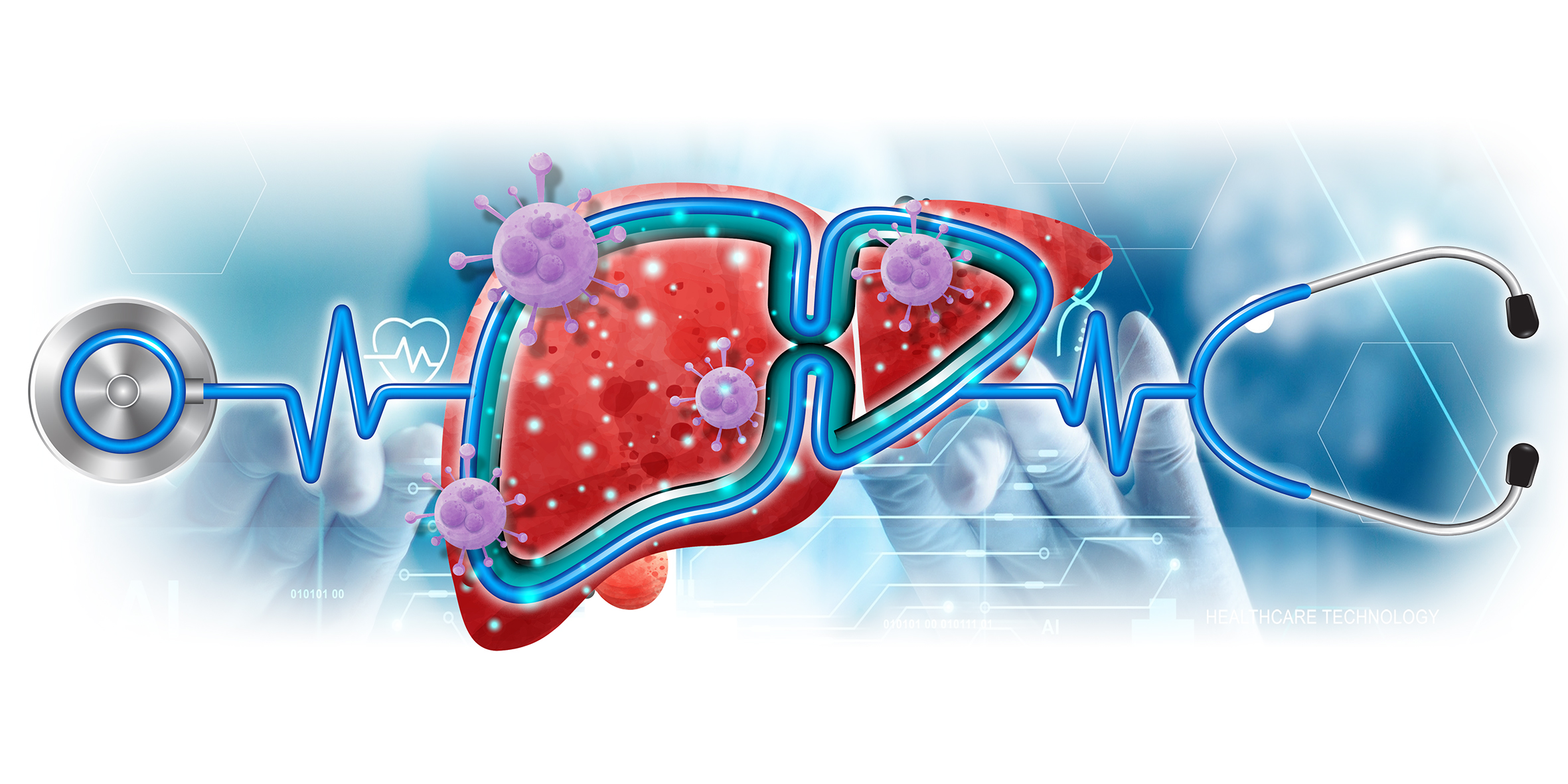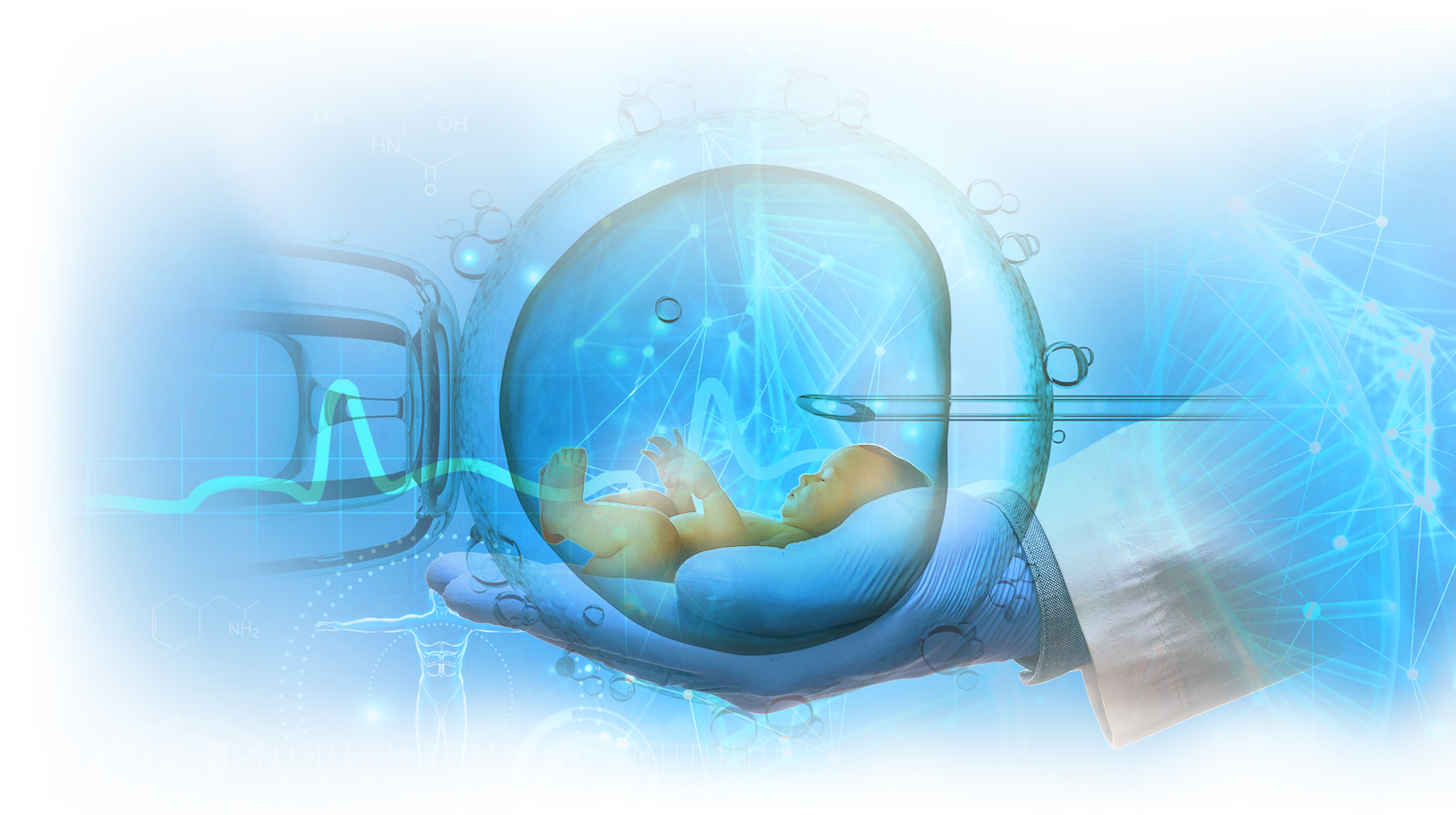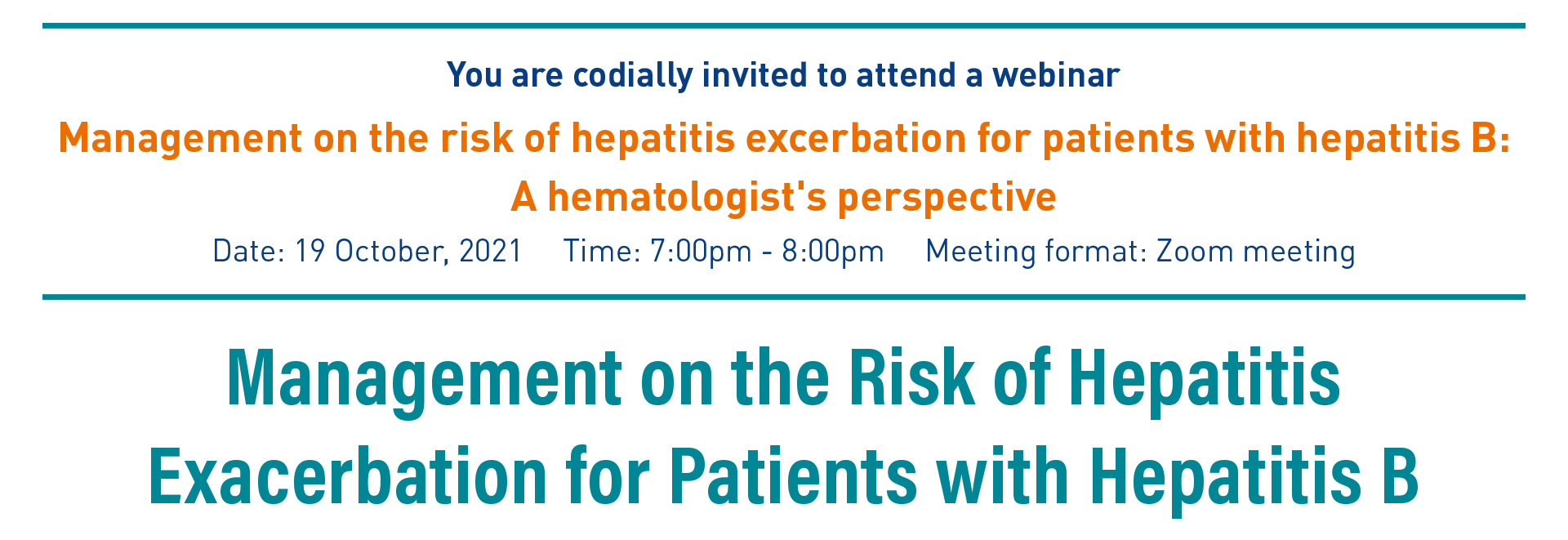
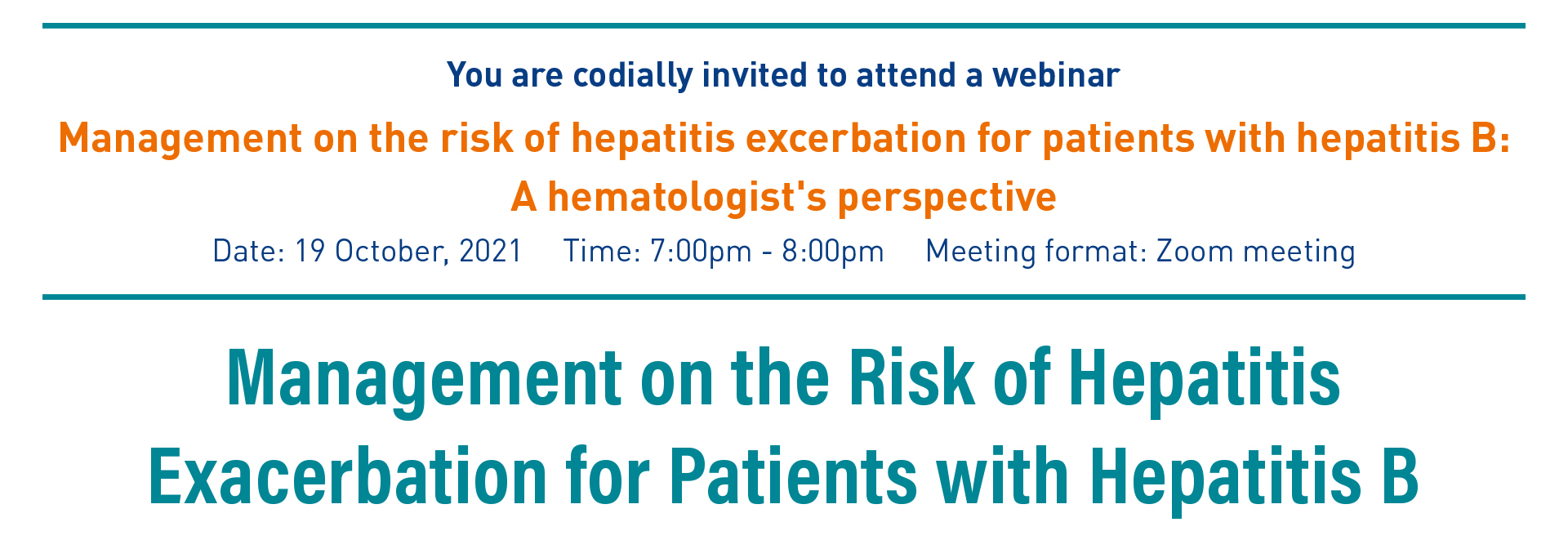
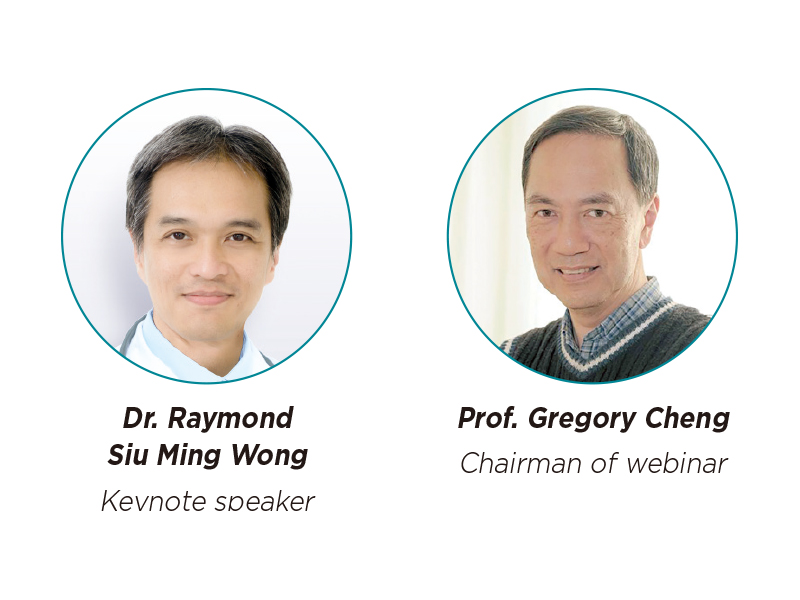
Hepatitis B is a viral infection causing inflammation of the liver, whereas chronic hepatitis B infection can lead to serious outcomes including cirrhosis, liver cancer and liver failure. While universal infant vaccination against hepatitis B virus (HBV) infection was introduced in Hong Kong in 1984, reactivation of HBV can occur spontaneously, but more typically be triggered by immunosuppressive therapy of cancer, autoimmune disease, or organ transplantation. On 19th October, 2021, a webinar organised by the Macau Society of Hematology and Oncology titled “Management on the Risk of Hepatitis Exacerbation for Patients with Hepatitis B: A Hematologist’s perspective” has been successfully organised.
In the event, Dr. Raymond Siu Ming Wong, Honorary Clinical Associate Professor of the Department of Medicine & Therapeutics of the Chinese University of Hong Kong, outlined the risk factors and clinical events occurred in HBV reactivation. He also presented findings on effectiveness of prophylactic antiviral drugs in preventing HBV reactivation during chemotherapy or immunosuppression. In particular, clinical issues on preventing HBV reactivation during chemotherapy or immunosuppression such as patient eligibility for prophylactic antiviral therapy and treatment protocols recommended in established guidelines were highlighted and discussed.
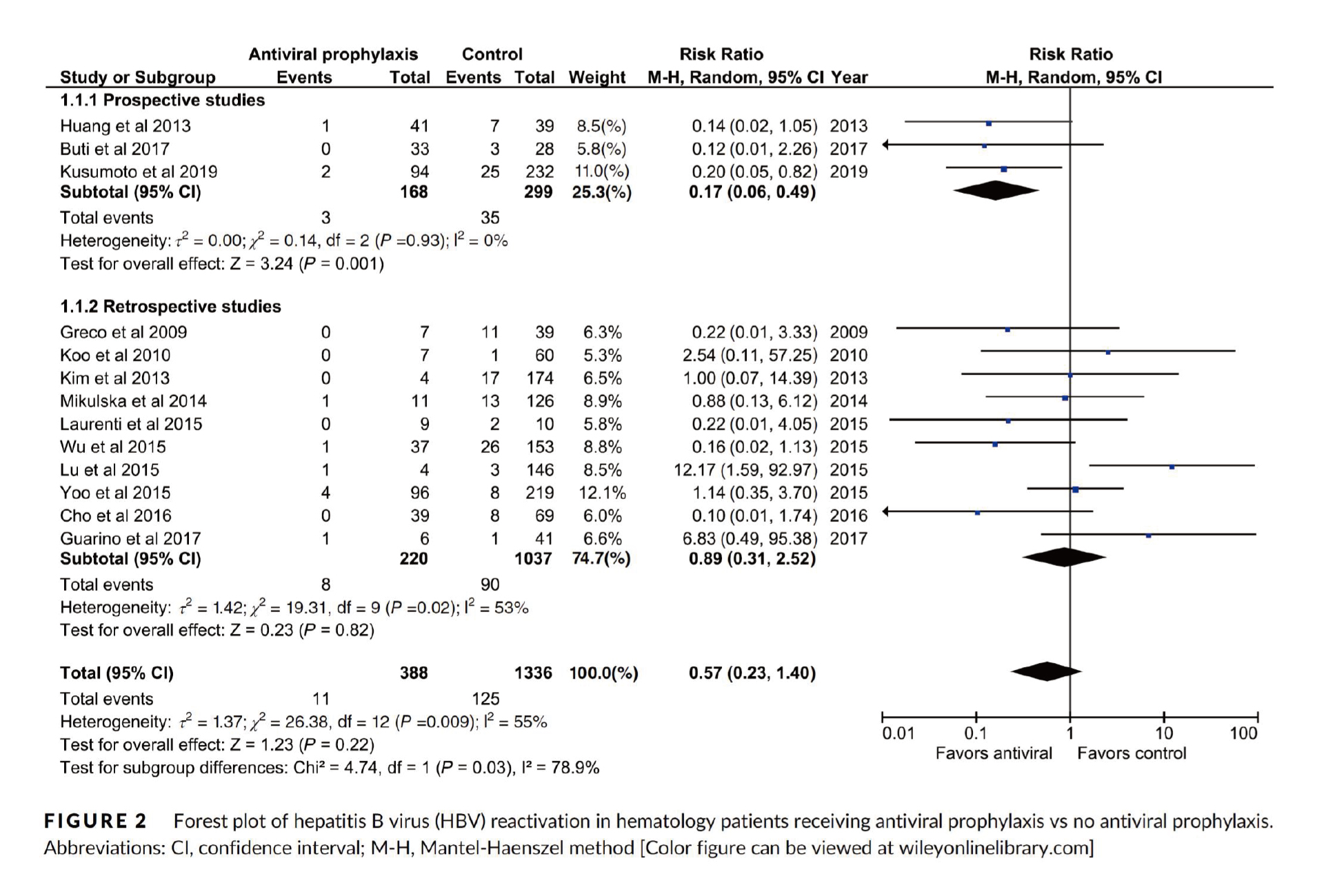
Effectiveness of prophylactic antiviral drugs in preventing HBV reactivation was discussed

Dr. Wong outlined the risk factors of HBV reactivation during chemotherapy or immunosuppression
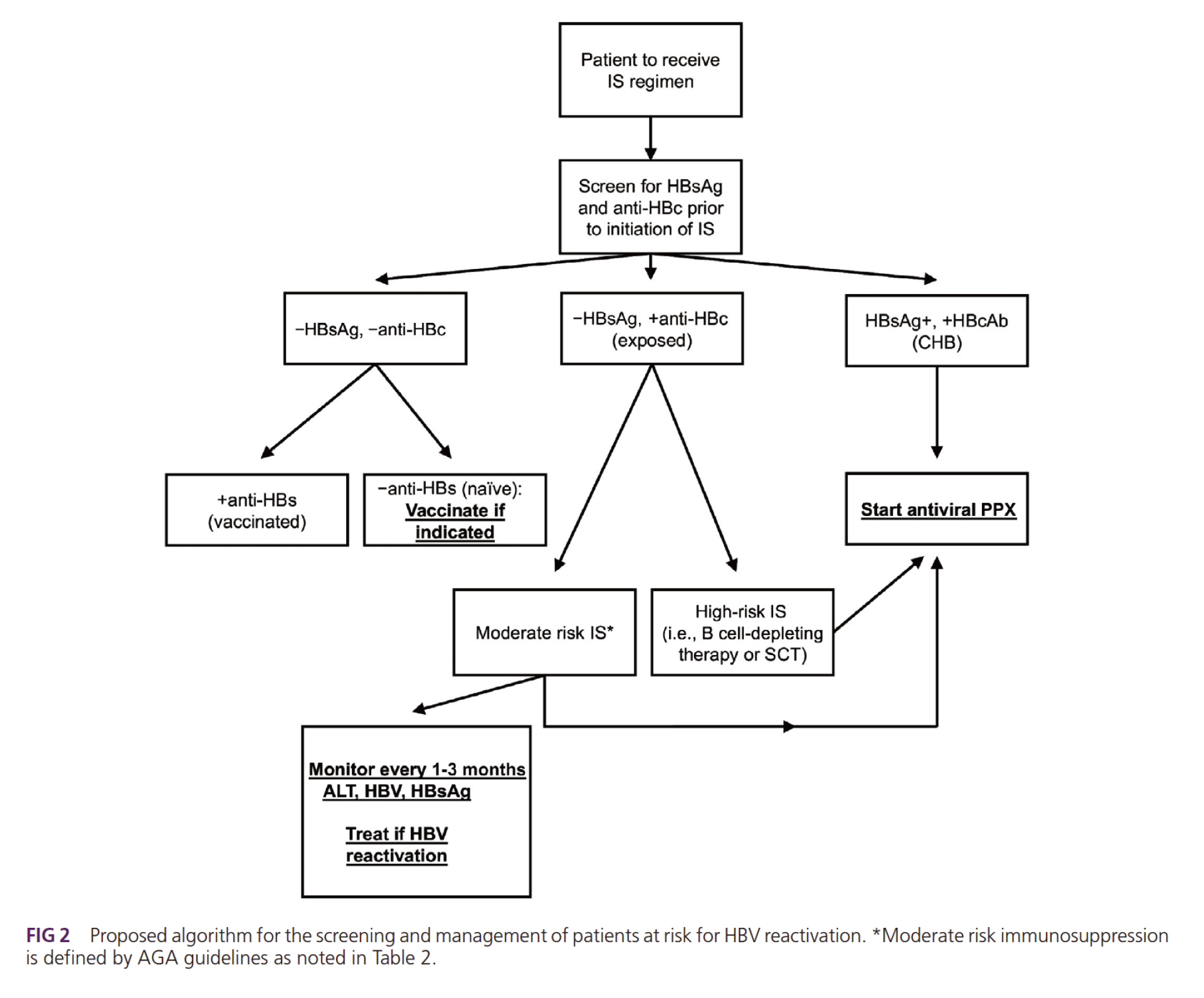
Recommended algorithm for screening and managing patients at risk for HBV reactivation was discussed

